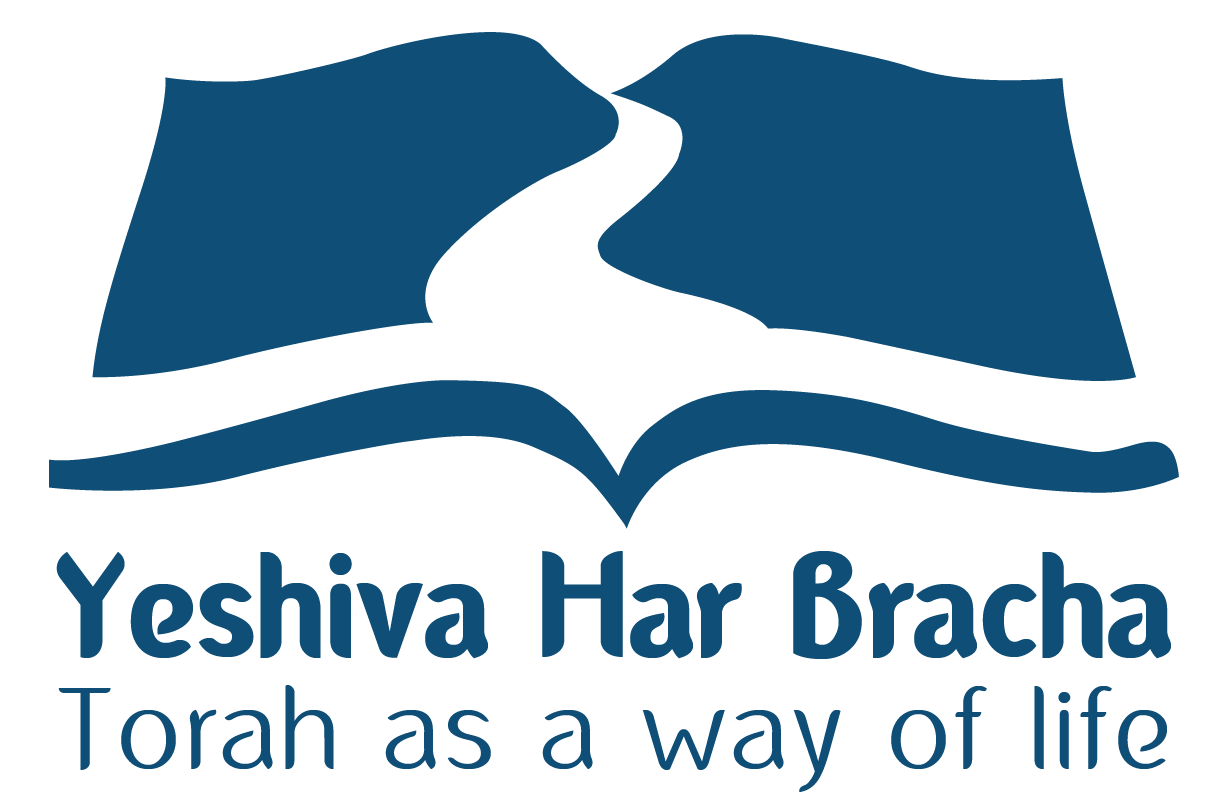Without the Torah the world could not have fulfilled its destiny * After the Torah had already greatly influenced the world, it seemed to many of the Jews that the people of Israel had completed their role * The current war expresses the deep crisis, and forces us to return to fundamentals * Our Sages instituted that outside the Land of Israel every holiday should be observed for two days * When a visitor has a deep connection to the Land, while he is in the Land he should conduct himself according to the custom of the Land of Israel
Our Sages said that the world was hanging in the balance until the sixth day of Sivan, if Israel would accept the Torah on it – it would exist, and if not, it would return to the primordial state of chaos and disorder (Shabbat 88a). This is because without the Torah, the world could not have fulfilled its destiny. It would have remained enslaved to the shackles of the evil inclination, without the ability to begin a process of moral repair that would bring it to its redemption.
We will illustrate the tremendous influence of the Torah in three areas:
1) Thanks to the guidance of the Torah, the value of marriage was established throughout the entire world. Without the Torah, phenomena of marriages involving incest within the family were common. Therefore, the halakha had to rule that a brother and sister, father and daughter, or mother and son who were married and converted, must separate.
2) The abolition of slavery: One of the principles that the Torah teaches us is that repair requires a deep process, and as long as according to the prevailing consciousness based on reality, the existence of slavery is necessary for the survival of many people, because without slavery the poor would die of hunger, and members of a defeated nation would be put to death – the Torah does not command to abolish slavery. But the Torah commands to treat the slave with respect, who has a soul, and to preserve his right to live and fulfill God’s commandments. Not only that, but the Torah itself was given to a nation of slaves who by God’s word went out to freedom. Thus, in a gradual process the world progressed to the abolition of slavery.
3) In those times, kings established the law and could bend it as they wished, and judges perverted justice for the strong and wealthy. In a gradual process the commandment was accepted that justice must do equal justice for all, and it is forbidden to discriminate against the poor and needy in judgment. And even the king himself is subject to the law, and therefore, he must write for himself a Torah scroll that would accompany him all the days of his life, and not deviate from its instructions.
The Crisis in Modern Times
After the Torah had already greatly influenced the world, through the religions that accepted part of its values (Christianity and Islam), and through the various thinkers who developed political theory and moral theory in the light of the Torah, it seemed to many of the Jews that the people of Israel had completed their role. There is no longer a need to cling to Jewish identity and preserve the consciousness of exile, and it is possible to join the enlightened nations, and through them, continue to repair the world in the light of the morality of the Torah and the Prophets. Thus began a serious and dangerous process of secularization and assimilation, and came the Communist revolution, and after it, the Holocaust. Even in democratic countries, a dangerous process began of the disintegration of the family, identities and values, until it is clear to many that the world is still far from its repair. However, still, without understanding the Torah in its greatness, the process of assimilation continues.
Let Us Return to Fundamentals
The current war also expresses the deep crisis, and forces us to return to fundamentals. For years, the State of Israel tried to explain to the world that it is ready to compromise with the Arabs, and behold, when despite everything the Arabs attacked us and wickedly harmed civilians – contrary to all international conventions – many in the world do not justify our war to destroy the enemy.
The reason is simple: almost all the official representatives of Israel do not express our absolute connection to the entire Land of Israel, a connection that stems from God’s word that bequeathed the Land to our forefathers, and to us. Except for a few ambassadors, like Dror Eydar and Tzipi Hotovely, our representatives do not mention the verses of the Torah, and do not quote the words of the Prophets who prophesied thousands of years ago about the return of the people of Israel to their Land, in order to make it flourish, and bring blessing to the world. The Bible is the most important and famous book in the world, but instead of speaking about it, and expressing the greatness of the miracle of the fulfillment of the Prophets’ words, our representatives speak about security and readiness for compromises, without an answer to the Arabs who claim that we came to a foreign land, and dispossessed its inhabitants. Out of wishful thinking, they describe the conflict with the Arabs as a neighborly conflict that can be solved by compromise, instead of explaining to the world that the Muslim Arabs who fight us, fight the people of Israel and the great idea of the Torah of Israel, and to a large extent, all the rest of the world that is not Muslim.
The Holiday of Shavuot
May it be God’s will that we merit on the coming holiday of Shavuot for good, to return and connect to the holy Torah, and each person, according to what is suitable for him, will add regularity in Torah study, and through this, we will understand our national destiny – to settle the Land, to do charity and justice, to defeat our enemies, and to bring blessing to the world.
Yom Tov Sheni Shel Galuyot
Our Sages instituted that outside the Land of Israel, every holiday should be observed for two days. The foundation of the institution is that the timing of the holiday depends on the sanctification of the month, and since in the Diaspora they did not know when they sanctified the month in the Land, on the 30th of the previous month or the 31st, they instituted that they should practice two days because of the doubt. However, this institution also had a spiritual foundation. The main revelation of the holiness of Israel and the holidays is in the Land of Israel, while outside the Land of Israel, in order to absorb the holiness of the holiday, they need to observe it for two days. This is analogous to a flashlight, that when it illuminates a close object, its light is strong and focused on a small area, but when it illuminates a distant object, its light weakens, and spreads over a large area. Similarly, the light of the holidays is revealed in the Land of Israel in one focused day, while outside the Land of Israel, their light weakens, and spreads over two days (Derech Mitzvotecha 114a).
Yom Tov Sheni for Diaspora Residents Who Are in the Land
The poskim (Jewish law arbiters) disagreed about the law of a Diaspora resident who ascended to the Land of Israel for a visit. Some say that when he is in the Land, his status is like a resident of the Land of Israel, and he should observe only one day of the holiday (Chacham Tzvi 167; Shulchan Aruch HaRav 496:11), and according to the majority of poskim, since his place of residence is outside the Land, even when he visits the Land, his status is like a Diaspora resident, and this is the practice (Birchei Yosef 496:7; Mishnah Berurah 496:13).
And although according to the basic law it would have been possible to be lenient, since the law of Yom Tov Sheni is rabbinic, and the rule is that in case of doubt regarding rabbinic law we are lenient, the custom was accepted to be stringent according to the rule that we follow the opinion of the majority of poskim. And since this is the custom, Diaspora residents who are in the Land on Yom Tov Sheni even recite the special blessings for the holiday.
However, it seems that when the visitor has a deep connection to the Land, and therefore, there is some chance that he will choose to immigrate to the Land, while he is in the Land, he should conduct himself according to the custom of the Land of Israel.
Those with Connection Who Are Exempt from Yom Tov Sheni
1) One who comes to the Land for a year of study, his long stay in the Land makes him a resident of the Land of Israel during his stay, and every time he visits the Land, he should observe only one day.
2) One who visits the Land from time to time, when his visits accumulate to a year, he is already somewhat a local resident, and from now on, during the holidays when he stays in the Land, he should observe only one day.
3) One who comes to visit the Land with the intention to immigrate to the Land when this becomes possible, even if he visits for a short time, and years will pass before he can realize his plan, during his stay in the Land, he should conduct himself like a resident of the Land.
4) A visitor who has children or parents who immigrated to the Land, is considered as having a connection to the Land, and during his stay in the Land, he should conduct himself like a resident of the Land.
5) One who buys an apartment in the Land of Israel to live in it during his visits, even though his visits have not yet accumulated to a year, by virtue of his apartment, while he is in the Land, his status is like a resident of the Land of Israel.
6) An expatriate who established his home outside the Land, even if he has been living there for decades, since for a significant period of his life he lived in the Land, as long as there is any chance that he will return to the Land, when he visits the Land, he should conduct himself like residents of the Land of Israel.
However, when they are outside the Land, since in practice their main residence is outside the Land, their status is like Diaspora residents in every matter, and they are obligated to observe Yom Tov Sheni (these laws are explained in Peninei Halakha: Moadim 9:8).
Laws for One Who Stays Awake All Night
One who stays awake all night, needs to wash his hands before the morning prayer. According to the custom of Sephardic Jews, he should not recite a blessing on the washing, and according to the custom of Ashkenazi Jews, the recommendation is to relieve oneself before prayer, and touch one of the covered places on the body that have sweated a little since the previous washing, and thereby become obligated in washing hands with a blessing.
Birchot Ha’Torah (Torah blessings): The prevalent custom is according to Rabbenu Tam, that even one who did not sleep at all throughout the previous day, since he comes to pray the morning prayer of the new day, he recites the Torah blessings. And one who wants to fulfill all opinions, should hear the blessings from his friend, and intend to fulfill his obligation thereby.
Birchot Ha’Shachar (Morning blessings): Even one who stays awake all night recites all the morning blessings, because these blessings were instituted for the general good that exists in the world, and not specifically for the personal good of the one reciting the blessing.
However, some say that one who did not sleep should not recite ‘Elokai Neshamah’ and ‘Hama’avir Sheinah‘, and therefore, ideally, if there is someone there who slept and is about to recite them, it is better to hear them from him, and intend to fulfill his obligation thereby. And if not, he should recite them himself. And an Ashkenazi Jew who knows that his father’s custom is not to recite them himself, should not recite them.
Time of the blessings: According to halakha, we say the Birchot Ha’Shachar and Birchot Ha’Torah blessings close to the morning prayer. And according to Kabbalah, they customarily say Birchot Ha’Shachar after Chatzot (midnight), and Birchot Ha’Torah after Amud Ha’Shachar (dawn).
Eating and Drinking at Night and Before Morning Prayer
During the night, one is permitted to eat and drink without limitation. And from the half hour close to Amud Ha’Shachar, it is forbidden to establish a meal, lest one be drawn into continuing eating his meal. This includes also being forbidden to eat bread or cakes in the amount of more than a ke’beitzah, but it is permitted to eat, without establishing a meal, vegetables, fruits, and grain dishes, without limitation.
From the time dawn rises, it is forbidden to eat anything and also forbidden to drink a flavored beverage, and even one who began to eat or drink before then – must stop. Only water is permitted to drink after dawn rises (one who needs coffee in order to concentrate in prayer, may drink coffee without sugar, before prayer). The time of Amud Ha’Shachar on the holiday of Shavuot in Israel this year is at 4:06.
This article appears in the ‘Besheva’ newspaper and was translated from Hebrew.








